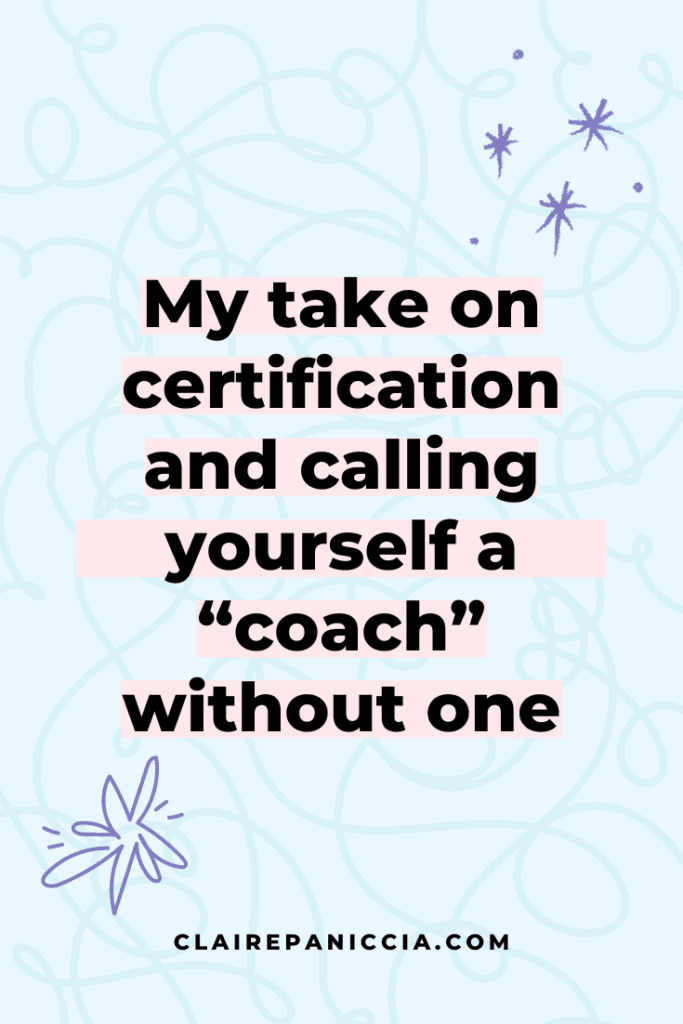There’s a lot of capital-D Discourse in the online business world about the word “coach” and more specifically, whether or not people should call themselves a coach if they don’t have a coaching certification.
Since I’ve decided to fully embrace calling myself a business coach, I think it’s important that I make my stance on this as clear as I can, so that you can make whatever choice is best for you about whether or not you want to be in my world or work with me.
Heads up, my take is very nuanced. Because you know I love me some nuance.
Here’s the thing about coaching as an unregulated industry
I think a lot of this contention stems from the fact that coaching in general is an unregulated industry, and particularly that it’s an unregulated industry that engages with people in a very emotionally vulnerable way, and can therefore cause a lot of harm to those consumers.
And in general, I’m pro-regulation for businesses, because of the wide-scale harm that mega-corporations can cause just for the sake of lining their pockets (for context, I’m American, so I’m really only speaking from a US perspective, though I imagine it’s similar everywhere).
BUT
I’m very anti-gatekeeping for things on an individual level.
And since coaches are businesses, but also individuals, my take on this is a bit nuanced.
Here’s the thing:
There are many people who are already naturally good at coaching, or have those skills from a previous career that transfer over well.
And a (good) coaching certification is prohibitively expensive. Like, to the tune of $10,000 at minimum.
To me, that looks like gatekeeping, and I don’t like gatekeeping.
Does that mean that there are going to be coaches out there who don’t really know what they’re doing or are being scammy exploitative grodies? Yeah, it does.
But honestly, that’s true of most professions. Plus, I'm sure there are plenty of coaches out there who are certified who are causing harm.
I don’t think gatekeeping a career-switch that could completely change someone’s life for the better is the right answer to preventing harm.
ON THE FLIP SIDE
When people start calling themselves “trauma-based coaches” or something like that, I think it’s incredibly important to have some kind of training to back that up with actual skills, not just intuition or personal experiences.
Sure, you can be trauma-aware or trauma-sensitive as you enter into your coaching with a client, but [in my opinion] it’s unethical to make it a core part of your positioning if you don’t have training to back it up.
You can call attention to being trauma-sensitive or whatever in other ways without making it a core part of your positioning.
At that point, it’s not about gatekeeping coaching. They can call themselves a coach, but just not call themselves a “trauma-based” coach, or however they want to phrase it.
What about coaches that aren’t life coaches?
Allow me to introduce yet another layer of nuance.
I think it’s a very different conversation when we’re talking about demanding certification for life coaches versus a niche-specific coach (for example a business coach).
I’ll be blunt: I think it’s silly to demand a business coach to have a coaching certification.
Because when I think of “business coaching”, I’m not thinking of “guide me to uncovering the answers within myself” type coaching.
I’m thinking of something more akin to a football coach.
[Bear with me, I know less than nothing about football]
A good football coach might help a player deal with some mindset stuff and finding answers within themself.
But that’s only like 30% of it.
A good football coach is also guiding them through what drills to do during practice, workouts to do in their down time, helping them learn how to play strategically, as well as offering strategic and tactical guidance in game, help getting out of their heads when they’re playing, and probably a whole lot more technical stuff that I don’t even know about.
With a business coach, I’m expecting them to bring their business acumen and experience into play just as much (if not more than) coaching skills.
I expect something more like a football coach, but for business.
“Coaching skills” (as we think of them when talking about certifications) play a relatively small role in what a business coach does on the whole, so to me, honed natural coaching skills are good enough to get the job done.
So who am I to call myself a business coach?
As a business coach for neurodivergent, spoonie, and creative rebel online entrepreneurs, I draw on:
- Over 8 years of experience in online business
- My experiences as a person with ADHD, autism, general anxiety disorder, (now managed) chronic depression, complex trauma, unpredictable energy fluctuations (#spoonielife), and other aspects of my neuroidentity
- Years of research into neurodiversity, ADHD, autism, and other neurotypes outside my own experience
- My natural coaching skills that I have honed over the 8 years in business that I haven’t called myself a coach
- The loads of coaching that I myself have invested in to improve myself as a person, business owner, and service provider (for example, trauma coaching, anti-racism coaching, etc)
- Years of open and honest conversations with people in my community with different experiences from mine
I don’t have a coaching certification, but I still think I’m a pretty great coach (and have been told as much by clients who do have coaching certifications)

